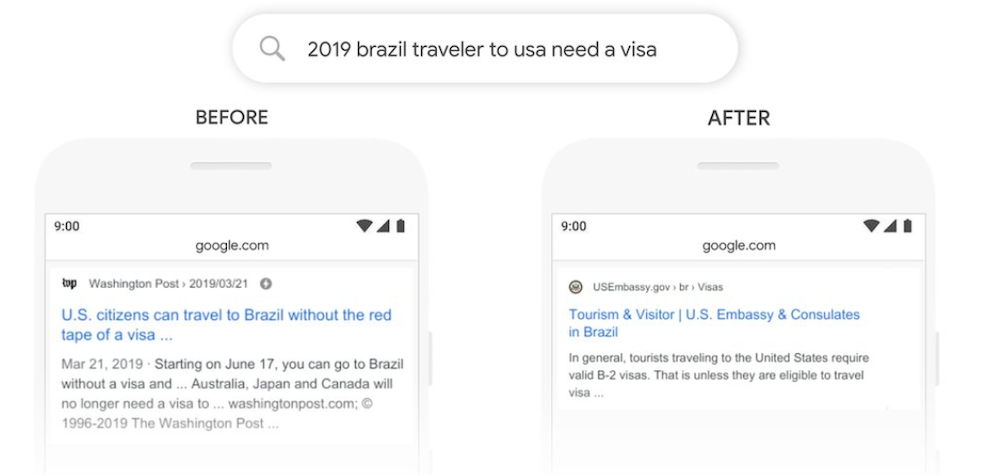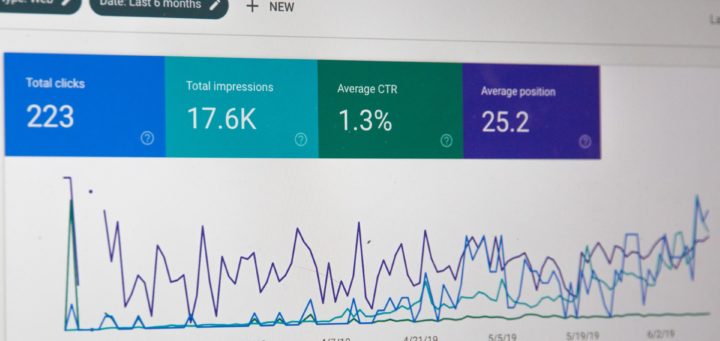A Summary of the Major Google Algorithm Updates in 2019
Search engine algorithm updates can affect anyone with a website, and every year, Google makes hundreds of them. While most of the changes they make can be relatively minor, there are occasionally major or “core” updates that can significantly impact a website’s ranking, SEO efforts and traffic.
For business owners and marketers, it’s important to know the details of when these core updates have happened, and what changes were implemented, which can both help to explain any dips in rankings or organic site traffic. Below is a summary of the major Google algorithm updates that happened in 2019, which will help you plan your SEO and any website edits for the new year.
Nov 2019 – BERT Update
Advances in machine learning led Google to make this update, which will improve how the search engine understands queries. The BERT update was the largest change Google has made to its search functionality in the past five years, and is said to impact 1 in 10 queries, and the corresponding results that rank for those queries.
BERT is Google’s neural network-based technique for natural language processing (NLP) pre-training called Bidirectional Encoder Representations from Transformers (BERT). In short, BERT models can “consider the full context of a word by looking at the words that come before and after it—particularly useful for understanding the intent behind search queries.”
Currently only rolled out to English queries at the moment, BERT also impacts snippets in all countries where snippets are available. Here’s an example that demonstrates BERT’s ability to understand intent in a sample search:
Here’s a search for “2019 brazil traveler to usa need a visa.” The word “to” and its relationship to the other words in the query are particularly important to understanding the meaning. It’s about a Brazilian traveling to the U.S., and not the other way around. Previously, our algorithms wouldn’t understand the importance of this connection, and we returned results about U.S. citizens traveling to Brazil. With BERT, Search is able to grasp this nuance and know that the very common word “to” actually matters a lot here, and we can provide a much more relevant result for this query.

September 2019 Core Update
This core update was rolled out globally on September 24, 2019. While Google did not provide many details about the update, an official blog posted in August detailed a self-assessment checklist to reference if you believe your website or pages are impacted by a core update.
- Content & Quality: Does the content provide original information, reporting, research or analysis? Is it insightful or informational? Does the headline grab attention? Is this the sort of page you’d want to bookmark, share with a friend, or recommend?
- Expertise: Does the content present information in a way that makes you want to trust it? Is this content written by an expert or enthusiast who demonstrably knows the topic well? Would you feel comfortable trusting this content for issues relating to your money or your life?
- Presentation & Production: Is the content free from spelling errors? Is it produced well or is it sloppy? Is the content mass-produced? Does content display well on mobile devices?
June 2019 Core Update
For the first time ever, Google pre-announced the roll-out of their June 3, 2019 core update. Analysis showed that some sites were impacted negatively, while others saw positive gains. Heres’s a great summary as to what types of sites seemed to be primarily affected, and the assumptions that have been made about the possible changes Google made in this update.
March 2019 Core Update
On March 12, 2019, this global update seemed to mostly impact rankings for keywords relating to the health industry. It also seemed to favour sites with stronger branding, which means that sites focusing on niche markets were negatively impacted. This summary post from Searchmetrics offers a clear listing of all “winners and losers” of the core update, and what you can do if you think you were negatively impacted.
—
As you close out the year, we highly recommend going through your analytics around the dates of each of these core updates, and determine if any of your traffic was impacted. If it was, and you hadn’t noticed before, then take some time to understand specifically which landing pages were affected, and for which keyword or search queries. It could be possible that relevant traffic is being missed or diverted, or irrelevant traffic erroneously sent to your pages as a result of these updates. You can then plan to prioritize the necessary changes in the new year.
Photo Source: Markus Spiske on Unsplash


